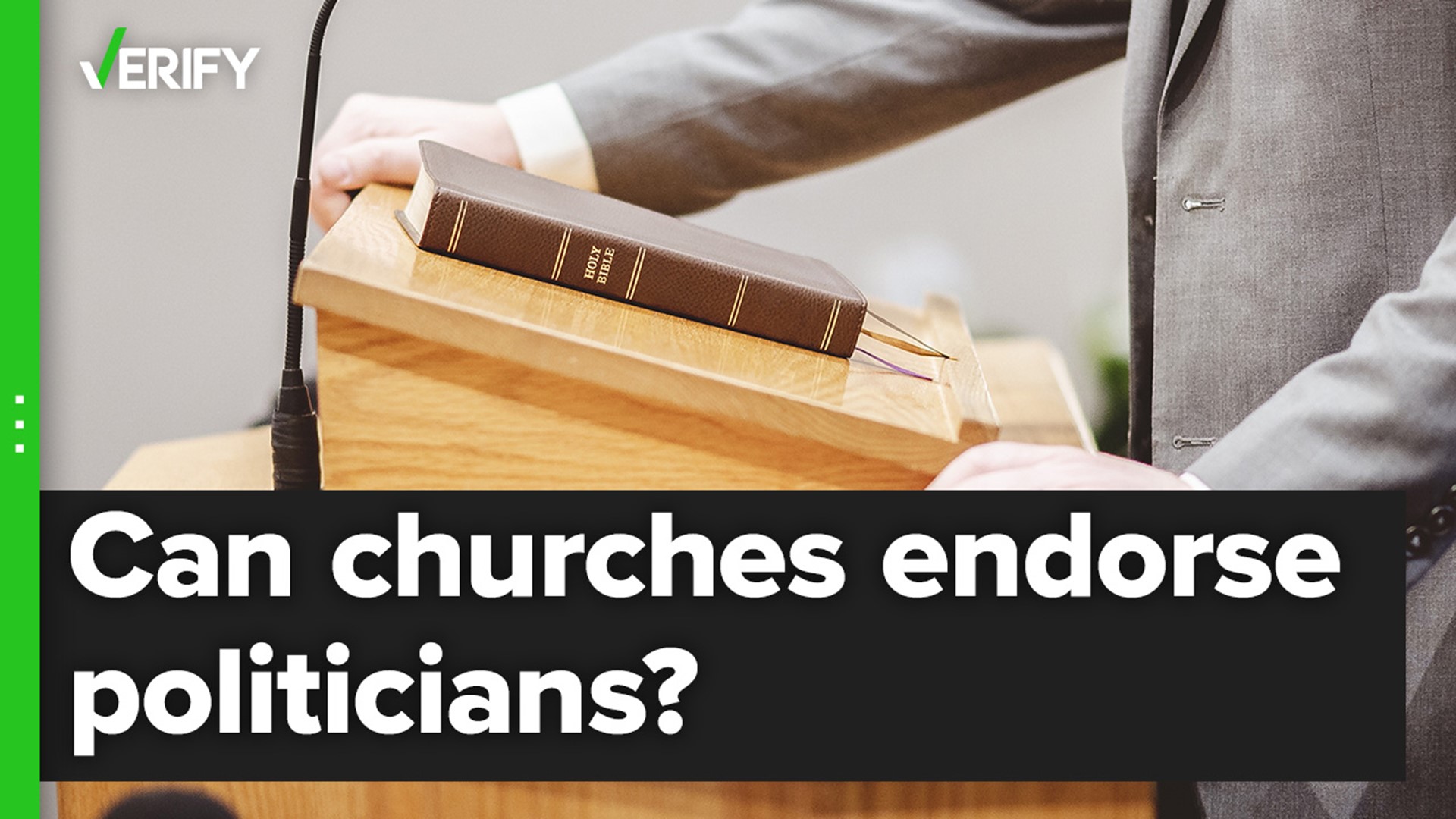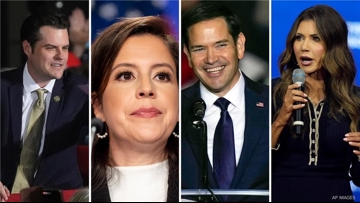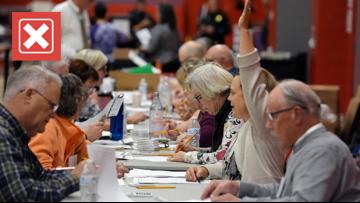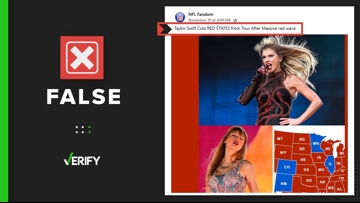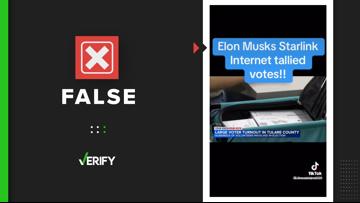VERIFY has been answering election questions and monitoring social media for claims ahead of the Nov. 8 midterms.
According to Google search trends, people were recently asking if a church is allowed to endorse a political candidate, after ProPublica published a report on church endorsements. A tweet with more than 16,000 likes says: “Report every church to the IRS that is backing a political candidate. This is a violation. They will lose their tax exempt status.”
This reporting is part of a series of stories ahead of the midterm elections. If you have any questions about the elections, email us at questions@verifythis.com or message us on social media @verifythis.
More from VERIFY: No, the federal government doesn’t run elections – states do.
THE QUESTION
Can the IRS revoke tax-exempt status for churches that endorse political candidates?
THE SOURCES
- Internal Revenue Service (IRS)
- Clergy Financial Resources, a financial group for religious organizations
- United Church of Christ, a U.S.-based group of churches
- Grace Communion International, a group of churches across 70 countries
- California Catholic Conference, the public voice of Catholic churches across California
THE ANSWER
Yes, the IRS can revoke tax-exempt status for churches that endorse political candidates. However, it has only happened one time.
WHAT WE FOUND
Churches and religious organizations are generally exempt from paying federal income tax, according to the Internal Revenue Service (IRS). To qualify for those benefits, churches are granted a 501(c)(3) tax-exempt status and have to follow certain rules under the Internal Revenue Code, which is a comprehensive set of tax laws.
In 1954, Congress passed the Johnson Amendment, an addition to the Internal Revenue Code, that prohibited most tax-exempt organizations, including charities and churches, from engaging in certain political campaign activities.
According to the Internal Revenue Service, any organization, including churches, that qualifies as a 501(c)(3) must “not participate in, or intervene in (including the publishing or distributing of statements), any political campaign on behalf of (or in opposition to) any candidate for public office.” Most charities are also classified as 501(c)(3) organizations.
Violating this rule means a church could lose its tax-exempt status.
However, there has only been one church that has ever lost that status since the Johnson Amendment was enacted. Branch Ministries lost its tax-exempt status after it took out a full-page newspaper ad urging Christians to not vote for Bill Clinton in 1992. The church later fought the IRS, saying it was violating the church’s freedom of speech. The court ruled the church’s right to speech was not violated and if they want to continue to be political, they would have to create a separate organization under a different tax status.
If the IRS gets a complaint that a tax-exempt organization might be violating the law, the referral gets sent to analysts to determine whether a violation occurred, the IRS says. The person making the complaint will get a letter confirming it was received, but the IRS cannot disclose whether it has initiated an examination or the results of an examination. The IRS is responsible for investigating and enforcing internal revenue laws and violations of tax law.
While they can’t endorse candidates, churches and other 501(c)(3) organizations can engage in a limited amount of lobbying – including on ballot measures – and advocate for or against issues that are in the political arena, the IRS says.
Clergy Financial Resources, a financial service for religious organizations and clergy, advises religious leaders are allowed to “speak their mind” and endorse candidates as long as they aren’t doing it as an official representative of the church.
“When speaking/writing their opinions on political issues outside of the church, church leaders are urged to indicate that these are their personal viewpoints and not the views of the religious organization they represent,” Clergy Financial says.
More from VERIFY: No, Election Day is not a federal holiday
Several church organizations also provide guidance that supports the IRS laws.
Grace Communion International, a global Christian church group, instructed its church officials to not engage in political endorsements.
“Don’t support or oppose a candidate directly or indirectly, whether in a sermon, church newsletter, sample ballot or by financial means. Avoid pejorative labels when mentioning a candidate by name,” the warning said. “Don’t provide volunteers, mailing lists, publicity, nor distribute or display campaign literature on church premises or provide free use of facilities unless made available equally to all parties and candidates.”
The United Church of Christ policy says its churches are allowed to take positions on policy issues during an election cycle “so long as the church’s support remains focused on issues, and not candidates.”
The California Catholic Conference policy says: “While many may believe that our Catholic Faith impels us to vote for a particular candidate, it is a rare occasion that a political candidate stands for everything that the Church teaches both in positions and track record. By not endorsing candidates which to greater or lesser degree may be at variance with Church teaching, the Church avoids projecting confusion about Catholic truth. Similarly, the Church avoids the possibility of future scandal by not endorsing candidates who may, after being elected, change their positions or fail to fulfill their promises.”
The IRS gives several examples of when a church official is or isn’t violating the rules. For example, if a church official endorses a candidate but doesn’t do it on behalf of the church, then it’s OK. If a church official invites a candidate to speak during a church service, and the candidate asks for a vote, that is a violation.
For more information on filing a complaint to the IRS, follow this link to the IRS website.
More from VERIFY: Yes, it’s legal for federal candidates to pay for endorsements
